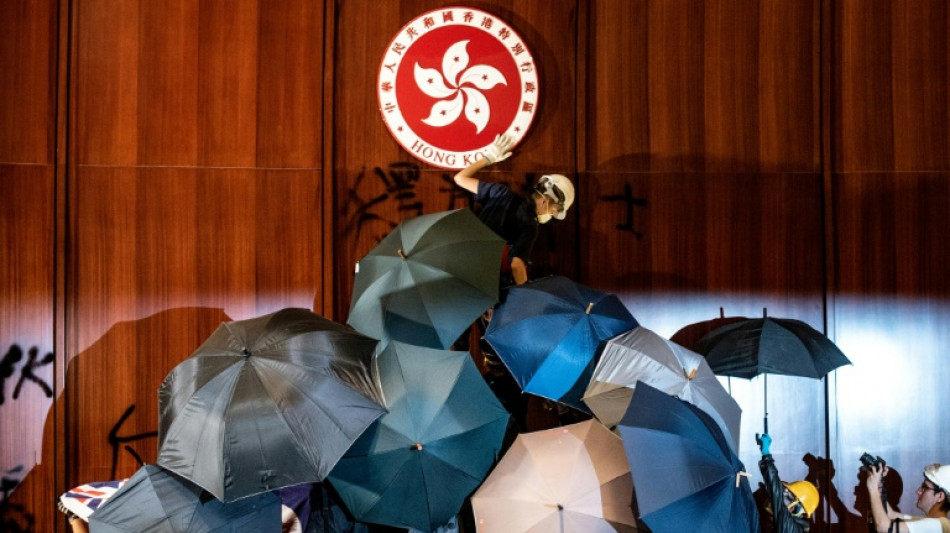
-
 Israel pounds Gaza City after offensive gets green light
Israel pounds Gaza City after offensive gets green light
-
Fraser-Pryce seeks Brussels boost ahead of Tokyo worlds

-
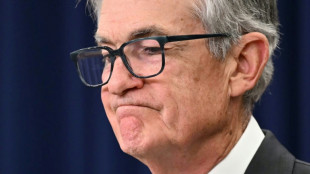 Asian markets mixed as investors await key speech
Asian markets mixed as investors await key speech
-
Ten hurt, 90 arrested as match abandoned following fan violence in Argentina
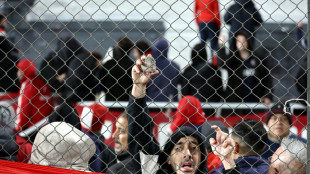
-
 Indian heritage restorers piece together capital's past
Indian heritage restorers piece together capital's past
-
Australian Rules player suspended for homophobic slur

-
 Online behaviour under scrutiny as Russia hunts 'extremists'
Online behaviour under scrutiny as Russia hunts 'extremists'
-
Malaysia rules out return of F1 over costs
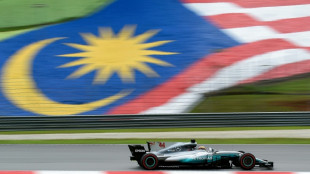
-
 German firm gives 'second life' to used EV batteries
German firm gives 'second life' to used EV batteries
-
Wallabies great Will Genia announces retirement at 37

-
 South Africa spinner Subrayen cited for suspect bowling action
South Africa spinner Subrayen cited for suspect bowling action
-
Menendez brothers face parole board seeking freedom after parents murders

-
 Weaponising the feed: Inside Kenya's online war against activists
Weaponising the feed: Inside Kenya's online war against activists
-
Africa could become 'renewable superpower', says Guterres
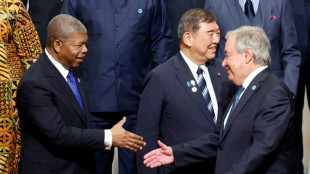
-
 Suspended Thai PM in court for case seeking her ouster
Suspended Thai PM in court for case seeking her ouster
-
Errani, Vavassori retain US Open mixed doubles title in revamped event

-
 Surging tourism is polluting Antarctica, scientists warn
Surging tourism is polluting Antarctica, scientists warn
-
Ten Hag hoping for fresh start at rebuilding Leverkusen

-
 Five players to watch at the Women's Rugby World Cup
Five players to watch at the Women's Rugby World Cup
-
Suarez fills Messi void as Inter Miami beat Tigres 2-1

-
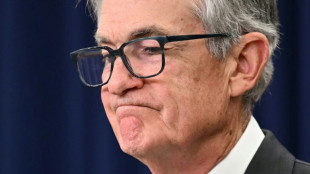 Asian markets creep up as investors await key speech
Asian markets creep up as investors await key speech
-
New Zealand spy service warns of China interference
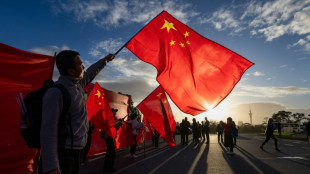
-
 Brazil police accuse Bolsonaro and son of obstructing coup trial
Brazil police accuse Bolsonaro and son of obstructing coup trial
-
Israel approves major West Bank settlement project

-
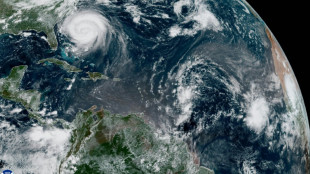 North Carolina braces for flooding from Hurricane Erin
North Carolina braces for flooding from Hurricane Erin
-
Pensioners on the frontline of Argentina's fiery politics
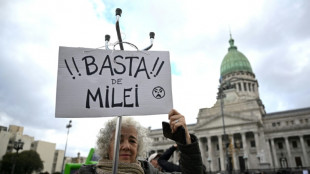
-
 'Curly is beautiful': Tunisian women embrace natural hair
'Curly is beautiful': Tunisian women embrace natural hair
-
Sudanese lay first bricks to rebuild war-torn Khartoum

-
 Newcastle host Liverpool amid Isak stand-off, Spurs test new-look Man City
Newcastle host Liverpool amid Isak stand-off, Spurs test new-look Man City
-
Texas Republicans advance map that reignited US redistricting wars
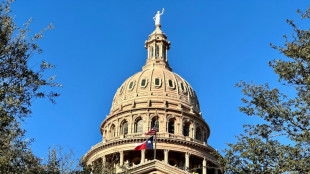
-
 South Africa spinner Subrayen cited for suspect action
South Africa spinner Subrayen cited for suspect action
-
Meme-lord Newsom riles Republicans with Trump-trolling posts
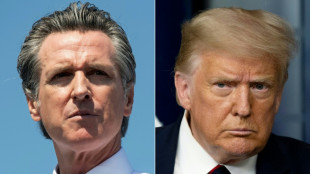
-
 Messi ruled out of Miami's Leagues Cup quarter-final v Tigres
Messi ruled out of Miami's Leagues Cup quarter-final v Tigres
-
Trump flirts with Ukraine security, with narrow margins
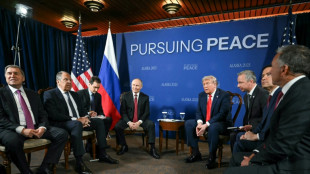
-
 US sends three warships near Venezuela coast
US sends three warships near Venezuela coast
-
Celtic held by Kairat Almaty in Champions League play-off

-
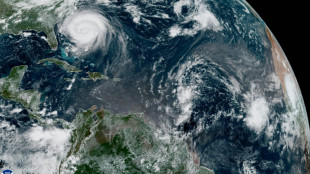 North Carolina braces for flooding from 'Enormous' Erin
North Carolina braces for flooding from 'Enormous' Erin
-
Arsenal could hijack Spurs' bid for Palace star Eze - reports

-
 Namibian Shalulile equals South African scoring record
Namibian Shalulile equals South African scoring record
-
PlayStation prices rise as US tariffs bite

-
 Games publisher kepler on cloud nine after smash hits
Games publisher kepler on cloud nine after smash hits
-
Thirteen arrested over murders of Mexico City officials

-
 Seville storms past Lyles for Lausanne 100m win
Seville storms past Lyles for Lausanne 100m win
-
Google unveils latest Pixel phones packed with AI

-
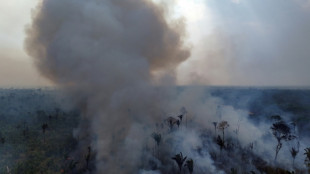 Brazil records 65 percent drop in Amazon area burned by fire
Brazil records 65 percent drop in Amazon area burned by fire
-
Threat from massive western Canada wildfire eases

-
 England women's rugby coach Mitchell says World Cup favourites' tag 'irrelevant'
England women's rugby coach Mitchell says World Cup favourites' tag 'irrelevant'
-
US ramps up attack on international court over Israel
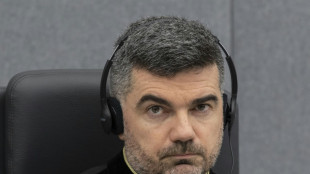
-
 Palace transfer targets Eze and Guehi to start in European tie
Palace transfer targets Eze and Guehi to start in European tie
-
North Carolina coasts prepare for flooding as Erin churns offshore
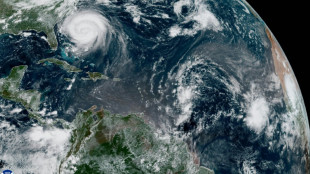

Hong Kong's dragnet widens 5 years after national security law
Jailed pro-democracy activist Joshua Wong shrugged and shook his head after a Hong Kong court this month announced a fresh charge of breaching the city's national security law.
The 28-year-old protest icon has spent more than four years behind bars and hoped to be let out in early 2027.
Now, there is no end in sight.
Monday marks five years since Beijing imposed a national security law after widespread and sometimes violent pro-democracy protests in the finance hub, which Chinese officials saw as a challenge to their rule.
China sees former protest leaders such as Wong as "incorrigible troublemakers", said John Burns, an honorary professor of politics and public administration at the University of Hong Kong.
"We have a daily drumbeat of national security on TV, in the media," Burns told AFP.
The new charge against Wong, who was jailed for subversion and unlawful assembly, underscores how Hong Kong authorities are still widening the dragnet.
The national security law criminalised for the first time secession, subversion, terrorism and foreign collusion, with offenders facing up to life imprisonment.
Since the law was introduced, 165 people have been convicted of various national security crimes, including under follow-up legislation in 2024 and colonial-era sedition laws.
The most severely punished was legal academic Benny Tai, who was sentenced in November to 10 years in prison as part of a sprawling subversion case involving 47 opposition figures.
A lawyer, who requested anonymity in order to discuss sensitive cases, said five years spent defending security law clients had laid bare the limits of his role. Of all those charged with national security crimes, only two have been acquitted.
"Our hands are tied," he told AFP. "Practically the only thing (lawyers) can do is argue for a lighter penalty."
- 'Information gap' -
Authorities have also warned against "soft resistance", a vague term introduced in 2021 and recently highlighted by Xia Baolong, China's top official overseeing Hong Kong.
Regina Ip, convenor of the Hong Kong government's cabinet, told AFP: "I don't think the government is being paranoid.
"Because of the increasingly complex and volatile international environment, we all need to be alert," she added.
Beijing security officials in Hong Kong also took part in "interviews" this month with collusion suspects for the first time, authorities said.
Eric Lai, a research fellow at the Georgetown Center for Asian Law, said the city was adapting approaches from mainland China such as "invitation to tea" -- a practice associated with state security agents.
Such informal methods "to regulate and to stabilise society" were favoured because they are "less visible", Lai said.
Another local lawyer with experience in security cases also noted a worsening "information gap" that has kept the public in the dark.
"There are fewer prosecutions now but more arrests, 'interviews' and operations where (people) are not brought to court," said the lawyer, who requested anonymity.
High-profile legal battles have not ended: the case of media tycoon Jimmy Lai continues, while a trial involving organisers of Hong Kong's once-annual vigil marking Beijing's deadly Tiananmen Square crackdown has not yet begun.
- Wave of departures -
Scores of pro-democracy and civil society groups, including trade unions and media outlets, have closed since 2020 and the ouster of opposition lawmakers has had "massive consequences for accountability", said Burns.
Hong Kong's Democratic Party has begun a process that will lead to its dissolution, while local media reported on Wednesday that the League of Social Democrats, the other remaining opposition party, could fold within days.
The security law has prompted a wave of departures.
Hong Kong independence advocate Tony Chung said he felt unsafe after finishing a prison sentence for secession and fled to the United Kingdom in 2023.
Chung is among 19 people Hong Kong authorities deem to be national security fugitives.
The 24-year-old has at times struggled to adapt while he waits in Britain for political asylum but insists on promoting his separatist views.
"Many friends told me that I can start a new life here and leave politics behind," he told AFP.
"I see the sun, good weather, a grassy field... But I force myself to remember why I came here."
U.Maertens--VB
